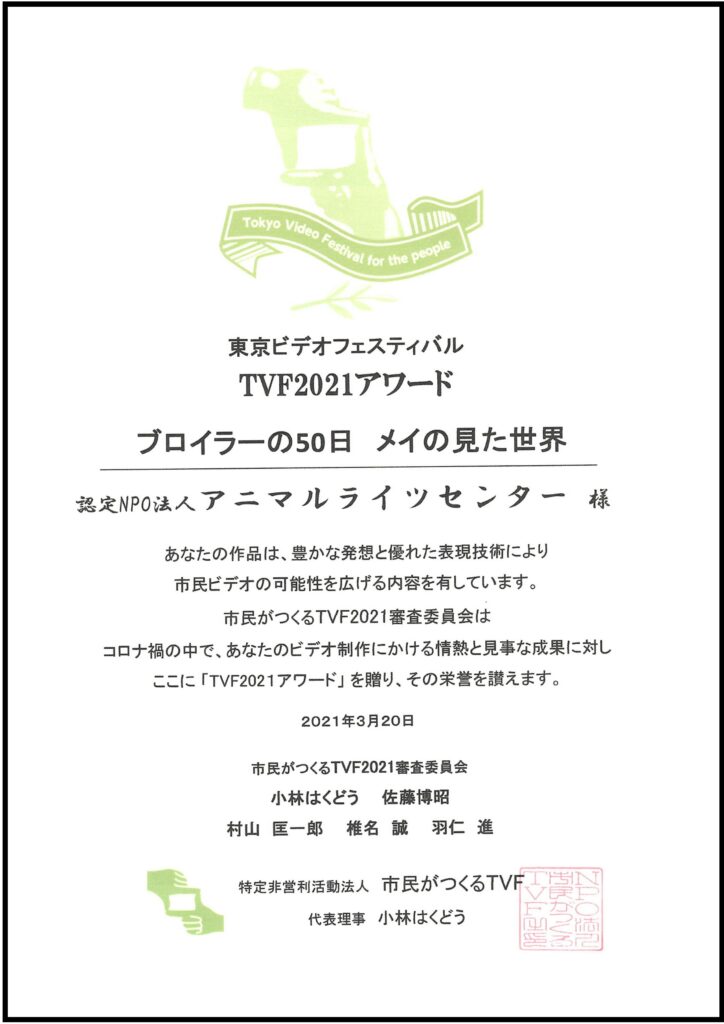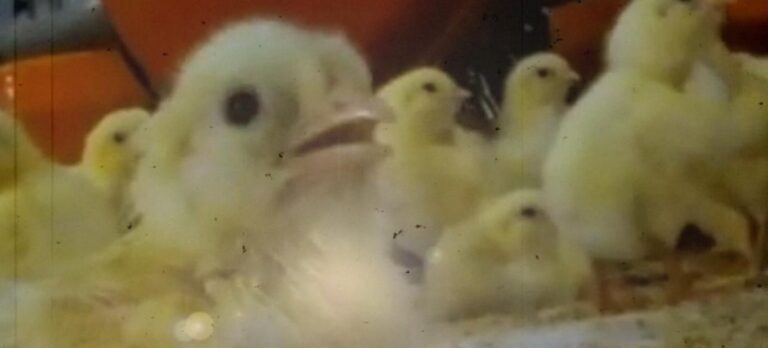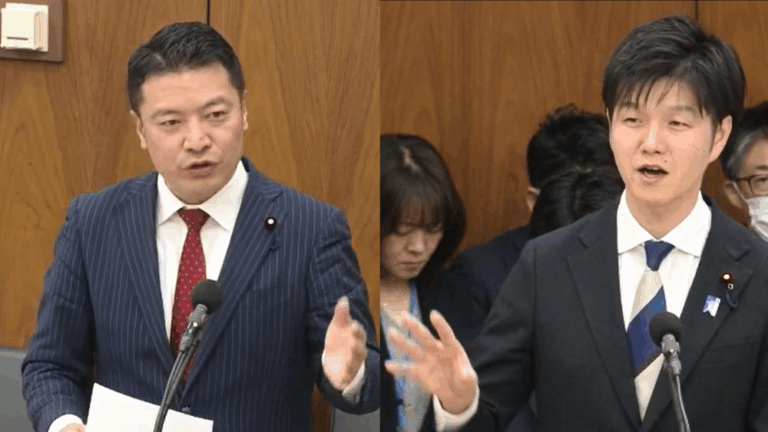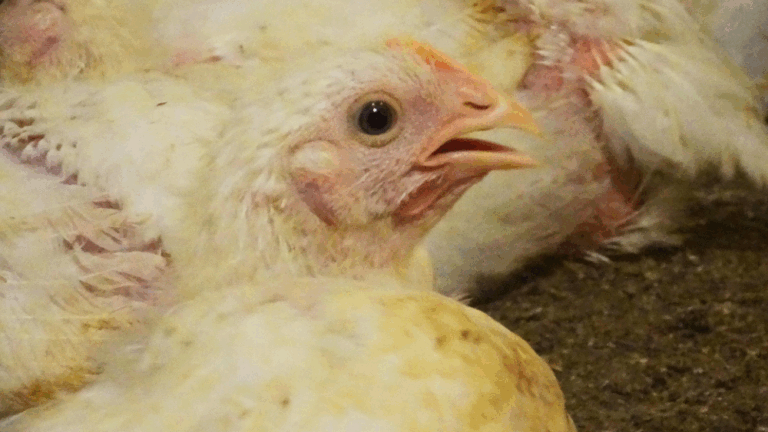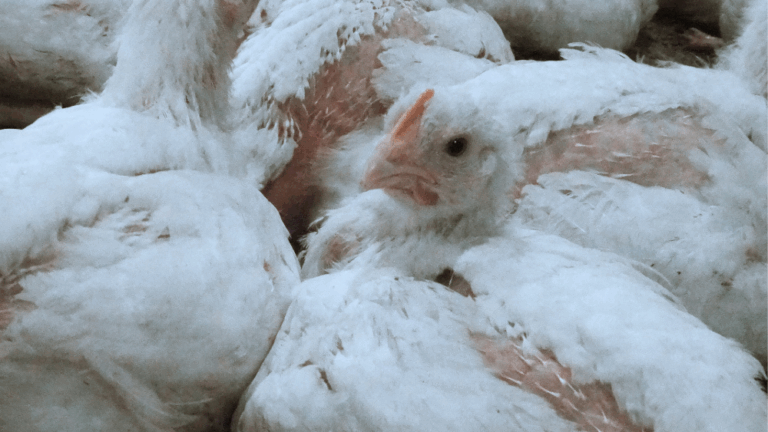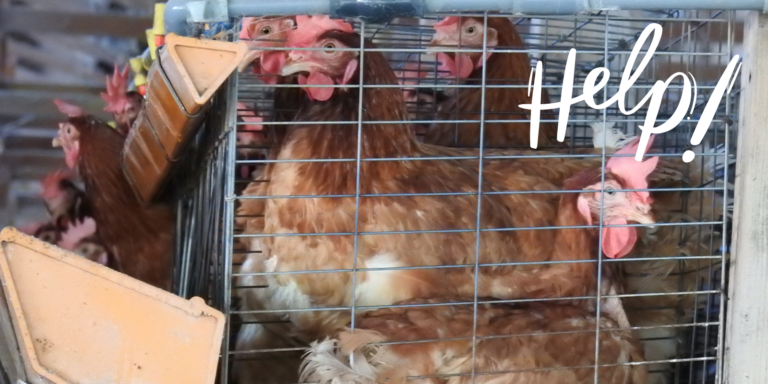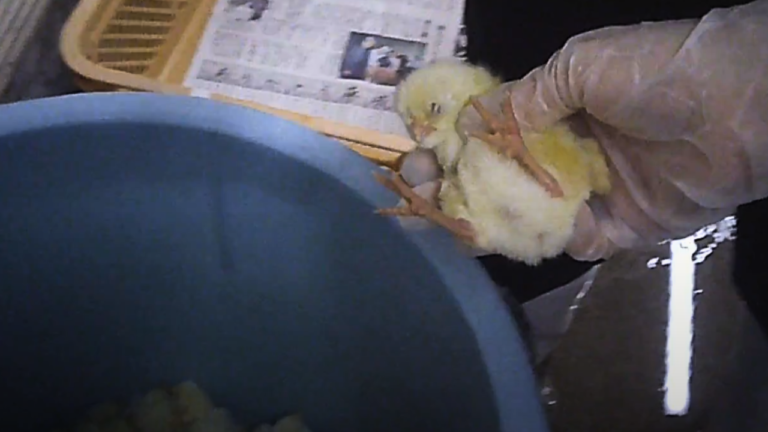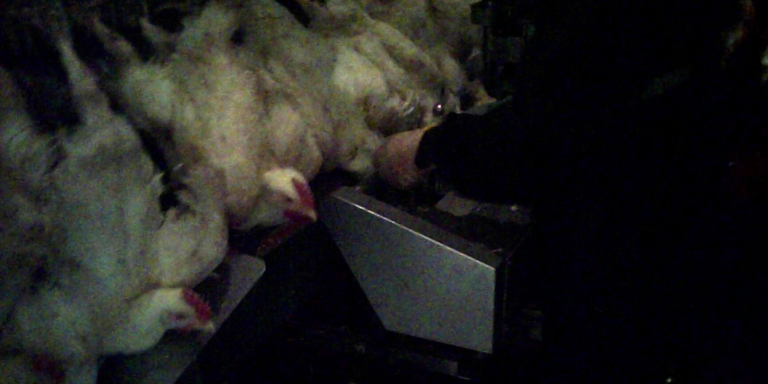[50 Days of a Broiler – The World Viewed by Mei], a short film produced by Animal Rights Center Japan, has won the TVF2021 Award at the Tokyo Video Festival. The news came as a complete surprise to us, and we are thrilled to share it with everyone who has been supporting our activities.
This is a three-minute short film that has been re-edited based on the footage titled [50 Days of a Broiler – The World viewed by Mei], which was released on Animal Rights Center’s official website in August last year. Since last year, ARCJ has been working on re-editing its collection of animal-related footages and making them available to a broader audience in the form of films. The aim of this initiative is to use films to educate the general public, who do not usually think about animals, about the issues surrounding animal agriculture.
Despite the fact that the film is only three-minute long, we believe it fully represented the abnormal growth of broiler chickens as well as the pain and suffering that chicks like Mei endure. One of the judges, in particular, stated they couldn’t help but cry when they heard Mei, battered and covered with wounds, courageously mutter “There is hope” moments before being shipped. Suppose it is natural for any human being to feel compassion for animals, even those they consume. The film, on the other hand, also received an unfavorable review that called the director’s own stance into question, saying that the director “is biased as a filmmaker to create a film from a negative standpoint toward the animal agriculture industry.”
Due to the COVID-19 pandemic, the Tokyo Video Festival was held online this year. Seeing our work featured alongside other films focusing on current social issues such as natural disasters, nuclear power plants, foreign labor issues, and education, gave us a sense of pride in that it demonstrated that the issues surrounding the animals are receiving greater attention. It’s also worth noting that the existence of farmed animals is not only inextricably tied to these very social issues, but also is a factor that complicates them.
If you’re a regular follower of Animal Rights Center’s news, you’re aware of the suffering that farmed animals have endured as a result of natural disasters and nuclear plant accidents. It is also known that many foreign students are currently working in the animal agriculture industry, where Japanese people are unwilling to work, and are subjected to discrimination and harmed by unfair treatment. Furthermore, in the field of education, the introduction of organic school lunches has been sought for the healthy growth of children, and animal welfare in foods is gaining attention; however, Japan’s lagging animal agriculture is stifling progress.
Thinking about the state of animal agriculture from all of these different perspectives eventually leads to the exposure of society’s darkness. Animal agriculture exists in the lowest reaches of this darkness, and while it has remained mostly hidden thus far, it has had a negative impact on society, deepening the darkness even further. However, as a result of animal rights efforts, the darkness is gradually being uncovered. When everyone in the country understands the truth about animal agriculture, we will be able to build a society in which there is nothing to hide and we do not turn a blind eye to wrongdoing.
In fact, from the end of last year to this year, the issues of farmed animals, including battery cages, have reached a major turning point. With the help of our supporters, we at ARCJ have been at the forefront of this movement, but it is now time for us to develop ways to make a powerful appeal to the hearts of more individuals whose daily lives are not directly associated with animals. One such activity, we believe, is the production of films that can present the issues of farmed animals as one of the issues that human society is facing, rather than categorizing them as a special “animal” topic. ARCJ will use this award as a springboard to explore what films can do for animals, and continue to produce films that serve to alleviate even the smallest amount of suffering and sacrifice inflicted on farmed animals.
Translation thanks to Haruka U.
